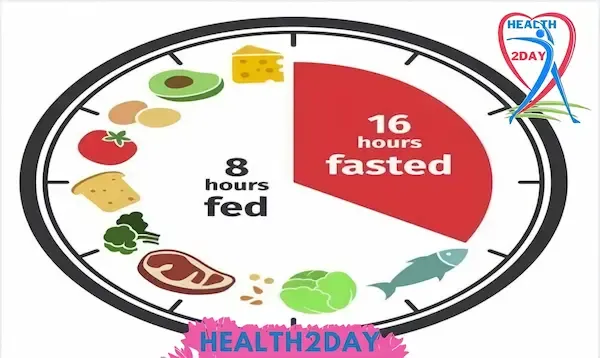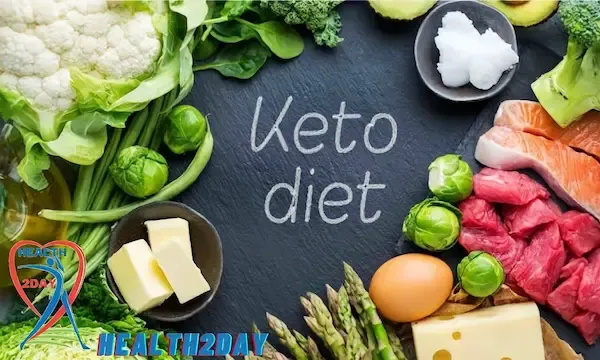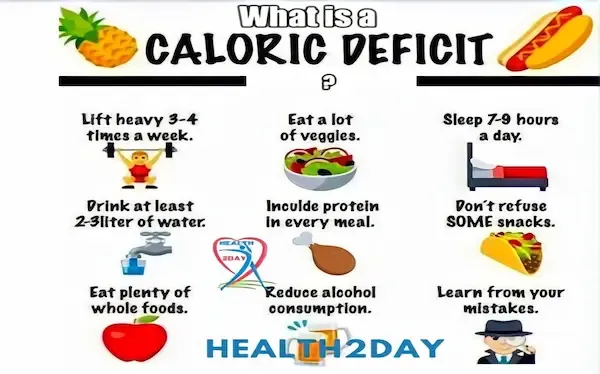Intermittent fasting is not better than a calorie deficit for weight loss.
•A study looked at how weight loss with a calorie deficit and intermittent fasting compare.
•The results show that intermittent fasting isn't better than a calorie deficit for weight loss, and it's actually worse at reducing body fat.
•Researchers say that adding physical activity to an intermittent fasting diet could help people lose weight.
Intermittent fasting is a general term for eating plans that only allow food at certain times. In these plans, it is common to fast for hours or even days at a time.
Dietary approaches have become more popular in the past few years as a way to lose weight and improve health. People may choose it because they think it is easier to follow than other diets.
Research suggests that intermittent fasting may help you lose weight, lower your blood pressure, make your body less sensitive to insulin, and lower your cholesterol.
But research on the diet in people has shown that, even though it is safe and helpful, it is not more effective than other low-calorie diets specially a calorie deficit.
Studies have a hard time telling the difference between the health and weight loss benefits of fasting and those of other diets.
Scientists from the University of Bath in the UK led a group of scientists from research institutes in the UK, Switzerland, and Taiwan to do a study on the specific effects of intermittent fasting.
The team's results, which are similar to those of a previous study, show that limiting calories every day and fasting every other day are both good ways to lose weight.
But calorie deficit every day led to most of the weight loss from body fat loss, while fasting only led to half of the total weight loss from body fat loss. The other half comes from mass without fat.
Fasting can help you lose weight
Between 2015 and 2018, researchers in the UK found 36 slim, healthy people to take part in the study. For four weeks, they kept track of what they ate and how much they moved around. The participants were then put into one of three groups of 12 people.
The first group, the "energy restriction" group, only used 75% of the energy they usually use in a day.
The second group lost weight by fasting and cutting back on calories. On some days, they didn't eat anything, and on other days, they ate 150% of their normal calorie intake.
The third group did not have any energy limits put on it. On some days, they didn't eat anything, and on other days, they ate 200 percent more calories than they normally would.
During their fasting periods, the people in the fasting groups didn't eat any foods that give them energy. This made sure that their diet changes were consistent and that their bodies' systems related to fasting were turned on.
A bunch of lab tests were done on the people before and after the 3-week intervention. The researchers also kept track of what the participants ate and how much exercise they did. They also took samples of fat tissue from some of them.
At the end of the study, people on low-calorie diets had lost an average of 1.91 kg (kg). People who fasted and limited their calories lost an average of 1.60 kg, while those who didn't limit their calories only lost 0.52 kg.
Fasting has an effect on how much energy you have
The researchers try to explain their results by saying that the difference in body mass between the calorie restriction groups is partly due to the fact that those who fasted were less active, so they lost less energy through heat.
People who didn't limit how many calories they ate but still fasted didn't do less physical activity.
The researchers also found that visceral fat in all of the groups went down by about the same amount over the course of the trial. Visceral fat is fat that builds up around the organs. It is linked to type 2 diabetes and heart disease.
There were no short-term changes in metabolic health (levels of blood sugar, cholesterol, and blood pressure) or gene expression in fat tissue among the people who took part in the study. The authors think this is because the people in the study were not overweight when the study began.
The researchers came to the conclusion that reducing physical activity during calorie-restricted fasting may slow down weight loss and that alternate-day fasting diets should include physical activity for the best weight loss results.
They do say, though, that they can't fully explain weight loss from fat-free mass in fasting diets because no one gave them samples of skeletal muscle. They also say that their food intervention was short, lasting only three weeks.
Prof. James Betts, who led the team's research, said, "Many people think that fasting diets are especially good for weight loss or that these diets offer certain metabolic health benefits even if you don't lose weight."
But intermittent fasting isn't a cure-all, and our data suggest that there's nothing special about it compared to normal diets that people may follow.
Eating nutrient-dense foods, which are high in fiber, vitamins, minerals, adequate protein, and healthy fats, will often make you feel fuller than eating foods that are not nutrient-dense.
"The less you eat, the more full you feel." If you eat whatever you want, you might not be as effective as someone who doesn't fast but limits the number of calories they eat.
Is a calorie deficit necessary for intermittent fasting?
Intermittent fasting can still give you most of its usual benefits even if you don't limit your calories. Physically, it can make you gain weight, lose weight, or stay the same weight, depending on how many calories you eat and how long you fast.
In the rest of this article, we'll go into more detail about what happens in each case, so you know what to do to reach your goals with intermittent fasting more often.
First, let's talk about the benefits of intermittent fasting that you can still get even if you don't limit your calories. For example, autophagy is a process that repairs cells, gets rid of waste, and helps the body recycle and reuse nutrients.
I.F. can also help make the body less sensitive to insulin and make more growth hormone (making it easier for you to lose fat and build muscle). It can help your brain and help you pay more attention by reducing inflammation and oxidative stress in your body. It can even change the way genes are expressed in a good way, which can protect against many diseases.
All of these are good things that can still happen if you fast for at least 16 hours per day.
Now, here's what can and will happen if you don't want to cut back on calories or just want to keep eating as usual without having to count calories.
A. You eat more than what your body needs
Getting enough protein and working your muscles can help you build muscle.
In this case, you're doing the two most important things you need to do to build muscles (eating more protein and challenging your muscles).
On top of that, you're doing intermittent fasting, which can boost growth hormone by a lot and make it easier and faster to build muscle.
In this case, I would just tell you to get some healthy fats and eat your carbs before your workout, choosing carbs with a low glycemic index that take longer to digest and give you more consistent energy during your workout.
Eating too much sugar and carbs with a high glycemic index and being inactive can lead to weight gain.
Almost always, eating too much sugar will make you gain weight.
Almost certainly, you can't burn off all the sugar you're eating. And sugar is broken down pretty quickly. So if you don't use it right away, it needs a place to go. Most of the time, it will be turned into body fat.
Now, if you do intermittent fasting for a long enough time, your body will change in ways we've already talked about, and you'll burn more calories than you would with a regular eating schedule.
So, too much sugar isn't good for your health, and it's also not good for intermittent fasting. In fact, most people who eat a lot of sugar on a regular basis become insulin-resistant.
This makes it much harder to fast because your body is always asking for food and sugars in particular.
So, I suggest swapping out some of these sugars for protein and healthy fats. This will make your lifestyle healthier and make it easier to stick to intermittent fasting.
More than half of your calories come from fat, you eat a moderate amount of protein, and you don't eat many carbs.
If you had come to me when you first decided to try intermittent fasting, I would have told you to do exactly that.
Which is basically the same thing as Healthy Keto and Intermittent Fasting.
Ketosis can't be reached with just 50% fat, but it can be a start.
When you do that, you'll feel full most of the time, which will make it much easier to cut back on calories, which is what you should do if you want to lose weight.
If, on the other hand, your goal is to gain muscle, you should also try to eat more protein along with the extra calories.
B. You don't eat as much as your body needs
Follow the Keto Ratio: Eat more fat, less protein, and a few carbs.
Most people who do Keto and IF follow this path. It's great for people who want to lose fat and keep their muscle mass at the same time.
You just need to learn more about the healthy version of Keto so you can get the best results in the healthiest way possible. This means eating more vegetables to get enough micronutrients, choosing healthy fats over bad ones, eating more fiber, and doing a lot of other little things that, when put together, can make a big difference in your journey.
You don't eat enough fat
People have said that they can't stick to intermittent fasting because they eat too much sugar and protein and not enough fat. This makes you feel hungry all the time and can really slow you down.
Sugar and carbs are more than protein (Not Eating Enough Protein).
We're having trouble here. When you do Keto or intermittent fasting, you usually don't need as much protein as you used to. You still need some of it, though. And if you don't get it, your muscles will start to waste away. You don't want things to start going that way.
C. You're eating about as much as your body needs before intermittent fasting
Even if you're eating the same amount as you did before, which caused you to reach a plateau before you started intermittent fasting, eating the same amount may now help you lose fat. This is because, as we've already talked about, intermittent fasting makes your body make more growth hormone, which makes you burn more calories than usual.
This means that even if you eat the same amount as before, your body is burning more calories, which means you're in a calorie deficit without even knowing it.
Does intermittent fasting work without a calorie deficit?
Have you heard of the magic of intermittent fasting? This is just a small part.
Even if you don't limit your calories, you can still get most of the benefits of intermittent fasting, like autophagy, positive hormonal changes, and keeping muscle mass. But if you don't pay enough attention to how many calories you eat, you shouldn't always expect to lose fat.

.webp)



